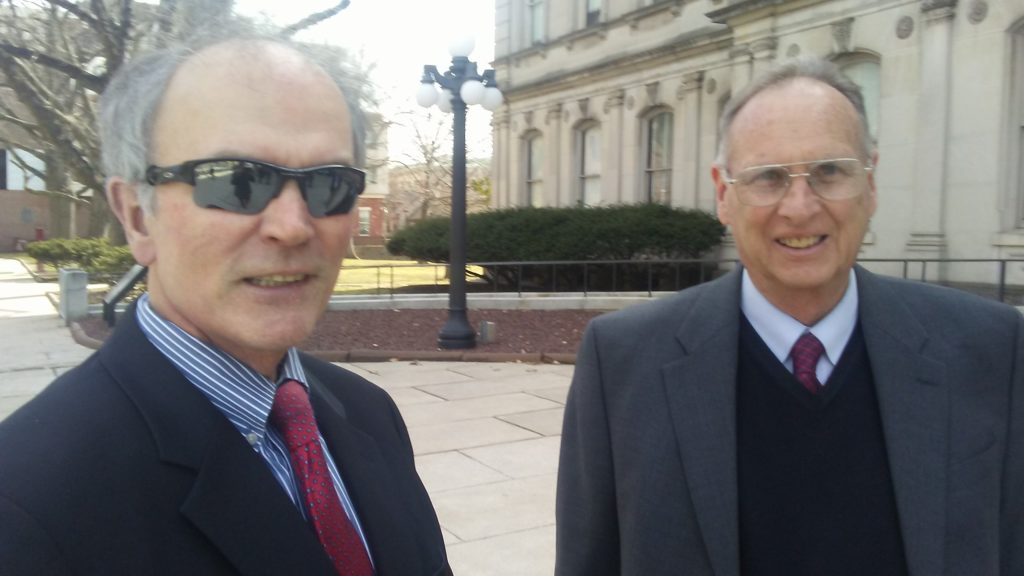BAN ON NJ COUNTY PARTY TRANSFERS COULD BE ON SHAKIER LEGAL GROUND DUE TO MISSOURI COURT RULING

Could a recent ruling by the Eighth Circuit Court of Appeals spell trouble for New Jersey’s ban on transfers of money between county party committees?
In November 2016, an amendment to Missouri’s Constitution imposed a ban on contributions between political action committees (PACs). The amendment was approved by voters of Missouri.
Following the adoption of the amendment, Free and Fair Election Fund (FFEF) and the Association of Missouri Electric Cooperatives Political Action Committee (AMEC-PAC), challenged the prohibition on PAC-to-PAC transfers as a violation of the First and Fourteenth Amendments.
Missouri’s Constitutional amendment read in part “Political Action Committees . . . shall be prohibited from receiving contributions from other political action committees . . . .” The amendment was defended by the Missouri Ethics Commission.
After a hearing, the United States District Court for the Western District of Missouri – Jefferson City ruled that the State’s amendment was “unconstitutional on its face under the First Amendment and unconstitutional as applied to FFEF.”
The District Court enjoined, or permanently stopped the Missouri Ethics Commission from enforcing the provision.
In April 2018, the Missouri Ethics Commission appealed the District Court’s ruling that permanently restricts the Commission’s ability to prevent transfers of funds between PACs.
On September 10, 2018, the Eighth Circuit Court of Appeals, which has jurisdiction over cases in Arkansas, Iowa, Minnesota, Missouri, Nebraska, North Dakota, and South Dakota, upheld the decision of the District Court.
Circuit Court rulings are not binding on others because each district is independent. New Jersey belongs to the Third Circuit along with Delaware, Pennsylvania and the Virgin Islands. While not binding in that district, the Eighth Circuit case could lay out a legal roadmap for a successful challenge of New Jersey’s law.
In its ruling, the Appeals Court stated “The district court properly enjoined enforcement of the transfer ban in its entirely. The amendment violated the First Amendment as applied to PACs that donate only to candidates and to PACs that both donate to candidates and make independent expenditures.”
As justification for its decision, the Appeals Court cited the “low risk of quid pro quo corruption stemming from PAC-to-PAC transfers” and the “existence of other campaign finance laws that facilitate transparency.”
In response to the Ethics Commission’s argument that without the ban it would be difficult to track funds comingled by PACs, the Court noted “If disclosure laws will not help the public discern who gave money to whom, then we are hard pressed to see how a candidate would identify an original donor to create a risk of quid pro quo corruption.”
Whether or not the ruling by the Eighth Circuit Court of Appeals is appealed and subsequently taken up by the U.S. Supreme Court, it nevertheless calls into question the constitutionality of New Jersey’s ban on county party to county party contributions.
Under the State’s Campaign Contributions and Expenditures Reporting Act (19:44A-11.3a), county party committees are prohibited from making contributions to each other during the primary election period.
The statute reads in part “. . ., between January 1 and June 30 of each year, a county committee of a political party shall not make a contribution to any other county committee of a political party, nor shall any such county committee accept a contribution from any other county committee during that period.”
At the time, the reason for such a restriction was to prevent a wealthy donor from spreading large donations around to county parties only to have those committees in turn wheel the donation to other county committees in circumvention of contribution limits.
The ban on inter-party transfers may have made more sense when it became law in 2006. But just 12 years later, the provision is outdated and counterproductive. The political party system in New Jersey has become very weak during the past decade.
Parties and the entire electoral system face an ever-growing threat from Super PACs and other independent special interest groups, which, unlike parties, can raise unlimited funds and often operate with little or no disclosure. Steps must be taken to reinvigorate parties so they can counter the influence of these independent spenders.
Furthermore, the logic set forth in Free and Fair Election Fund v. Missouri’s Ethics Commission is applicable to the State’s ban on county party transfers.
If it is unconstitutional to restrict PAC-to-PAC transfers, whether made to PACs that contribute to candidates or spend independently, why is it not unconstitutional to restrict county party-to-county party donations?
The New Jersey Election Law Enforcement Commission has put forth a pragmatic set of proposals to strengthen political parties, simplify and strengthen pay-to-play, and require disclosure and registration of independent groups.
One of the prongs of its recommendation to strengthen political parties is to end the ban on county party contributions to each other. In the wake of the recent Eighth Circuit Appeals Court decision and with the serious need to offset the clout of independent groups by strengthening political parties, now may be the time for the Legislature to reconsider the ban on county party transfers.
The Legislature also needs to consider moving the full package of proposals that, together, would improve the State’s electoral system by strengthening political parties and shrinking the power of dark money groups.
Jeff Brindle is the Executive Director of the New Jersey Election Law Enforcement Commission.
The opinions presented here are his own and not necessarily those of the Commission.





